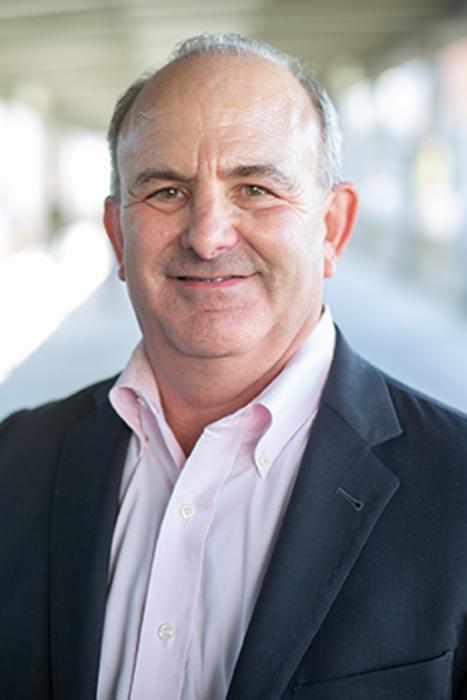Chapel Hill, North Carolina—Researchers at UNC Lineberger Comprehensive Cancer Center and colleagues have determined that a specific type of immune cell — type II innate lymphoid cells (ILC2s) — can change its characteristics and functions after a cancer patient receives stem cells from a donor, thereby preventing an effective, healthy rebuilding of the immune system. This new understanding of ILC2 cells’ transformational flexibility could lead to better strategies for enhancing immune system recovery post-transplantation.

Credit: UNC Lineberger Comprehensive Cancer Center
Chapel Hill, North Carolina—Researchers at UNC Lineberger Comprehensive Cancer Center and colleagues have determined that a specific type of immune cell — type II innate lymphoid cells (ILC2s) — can change its characteristics and functions after a cancer patient receives stem cells from a donor, thereby preventing an effective, healthy rebuilding of the immune system. This new understanding of ILC2 cells’ transformational flexibility could lead to better strategies for enhancing immune system recovery post-transplantation.
The finding appeared July 17, 2024, in Nature Communications.
In the U.S., there have been more than 8,000 allogeneic stem cell transplants performed annually over the past decade or so. This procedure, in which healthy cells from a donor are infused into a patient, is frequently used to treat cancers like acute lymphoblastic and acute myelogenous leukemias, a pre-cancer called myelodysplastic syndrome, and some lymphomas.
“Allogeneic transplants can be very effective, and potentially lifesaving, but not all immune cells given to a recipient are reproduced from donor cells,” said Jonathan Serody, MD, corresponding author and Elizabeth Thomas Professor of Medicine, Microbiology and Immunology, chief of hematology at UNC School of Medicine and director of the UNC Cellular Therapy Program. “Innate type 2 lymphoid cells are often poorly generated once transplanted in a recipient, and the ILC2s that appear to deviate from their innate programming are the cells that cause more problems after a transplant, which is why we chose them as our focus.”
The success of an allogeneic stem cell transplant depends on a variety of factors. The most important are a patient’s remission status, their age and how closely the patient’s and the donor’s human leukocyte antigens (HLAs) match. HLAs are proteins found on most cells. The closer the HLA match, the more likely the procedure will be a success and the less likely the patient will experience a post-transplant complication called graft-versus-host disease where donor immune cells attack recipient’s tissues.
Serody added that knowing the impact of ILC2s on the success of a transplant, and how to potentially influence that impact, also could make an important difference in how to treat a patient.
The majority of experiments the researchers performed were in mice but were also confirmed by other tests on specimens from 12 cancer patients at the Duke Cancer Institute, Durham, North Carolina. In the mouse studies, more than 80% of ILC2 cells donated to mice as part of the transplant transformed to an ILC1-type after 20 days. This unexpected transformation can potentially worsen graft-versus-host disease.
The mouse studies helped the researchers identify, at the level of a single cell, the genetic makeup of each cell as well as how proteins and DNA interacted with each other in the nucleus of the cell. These factors can affect how genes are expressed, which in turn can affect transplant outcomes.
“Our approach revealed the identity of cells in a complex transplant mix, and this knowledge could help us develop novel therapeutic strategies,” said UNC Lineberger’s Ian Davis, MD, PhD, study author, chief of pediatric hematology-oncology and Stuart H. Gold Professor of Childhood Cancer at UNC School of Medicine. “We envision future therapies that, post-transplant, might direct a recovering immune system toward groups of immune cells associated with a favorable outcome.”
The scientists are embarking on a clinical study to test whether the infusion of ILC2 cells can treat lower gastrointestinal graft-versus-host disease. If they find this is a safe approach, they may genetically alter ILC2 cells to make them more effective in a follow-up study.
Serody noted that the level of collaboration between research on graft-versus-host disease in his lab and the work done in Davis’ lab on modulators of gene transcription in cancer is very different from how research is conducted at many other institutions. “This kind of collaboration has allowed this important research finding to efficiently reach its fruition,” Serody said.
The paper’s first authors are Sonia J. Laurie, PhD, a postdoctoral fellow at UNC and a member of the Serody lab at UNC Lineberger, and Joseph P. Foster II, a graduate student at UNC and a member of the Davis lab at UNC Lineberger.
Journal
Nature Communications
Method of Research
Experimental study
Subject of Research
Cells
Article Title
Type II innate lymphoid cell plasticity contributes to impaired reconstitution after allogeneic hematopoietic stem cell transplantation
Article Publication Date
17-Jul-2024
COI Statement
Jonathan Serody has received research funding from Merck Inc., Carisma Therapeutics, and Glaxo Smith Kline and is a compensated consultant for PIQUE Therapeutics. Samantha G. Pattenden. and Ian Davis. own equity in Triangle Biotechnology, Inc.



